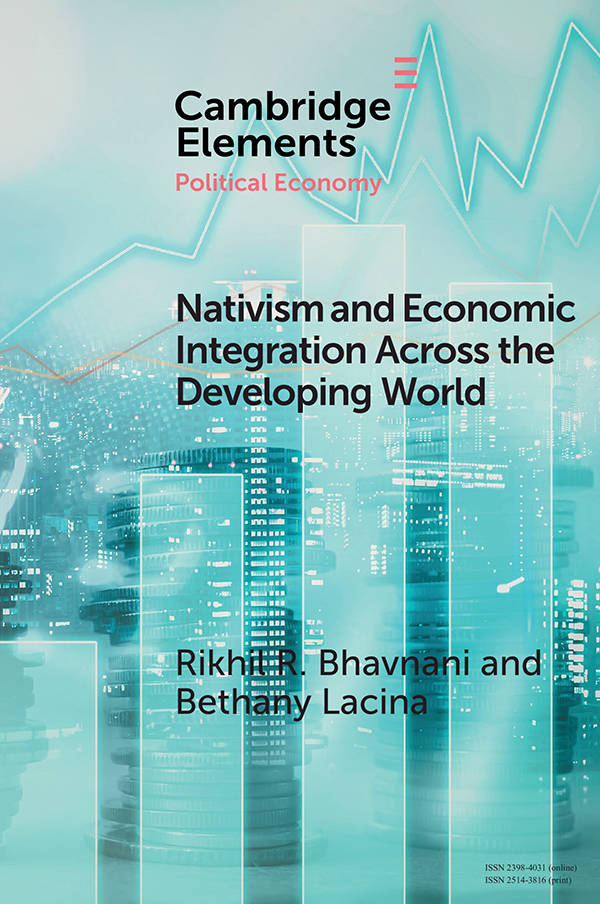Bhavnani, Rikhil R., and Bethany Lacina. 2019. Nativism and Economic Integration Across the Developing World: Collision and Accommodation. Cambridge University Press, Cambridge Elements: Political Economy series, ed. David Stasavage.
 Migration and nativism are explosive issues in Europe and North America.
Less well-known is the tumult that soaring migration is creating in the
politics of developing countries. The key difference between
anti-migrant politics in developed and developing countries is that
domestic migration - not international migration - is the likely focus
of nativist politics in poorer countries. Nativists take up the cause of
sub-national groups, vilifying other regions and groups within the
country as sources of migration. Since the 1970s, the majority of
less-developed countries have adopted policies that aim to limit
internal migration. This Element marshals evidence from around the world
to explore the colliding trends of internal migration and nativism.
Subnational migration is associated with a boom in nativist politics.
Pro-native public policy and anti-migrant riots are both more likely
when internal migration surges. Political decentralization strengthens
subnational politicians’ incentives and ability to define and cater to
nativists.
Migration and nativism are explosive issues in Europe and North America.
Less well-known is the tumult that soaring migration is creating in the
politics of developing countries. The key difference between
anti-migrant politics in developed and developing countries is that
domestic migration - not international migration - is the likely focus
of nativist politics in poorer countries. Nativists take up the cause of
sub-national groups, vilifying other regions and groups within the
country as sources of migration. Since the 1970s, the majority of
less-developed countries have adopted policies that aim to limit
internal migration. This Element marshals evidence from around the world
to explore the colliding trends of internal migration and nativism.
Subnational migration is associated with a boom in nativist politics.
Pro-native public policy and anti-migrant riots are both more likely
when internal migration surges. Political decentralization strengthens
subnational politicians’ incentives and ability to define and cater to
nativists.
Buy the book at Amazon , Barnes & Nobel, or Cambridge University Press.
A brief summary of the argument, as it applies to India, was published by the The Hindu Business Line, and the Center for the Advanced Study of India in English and Hindi.